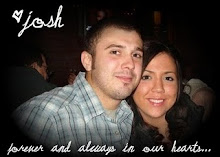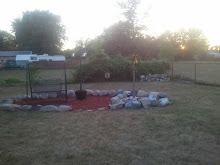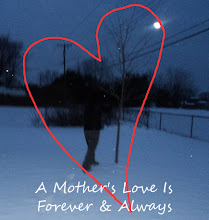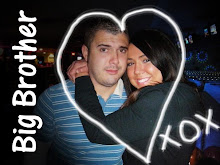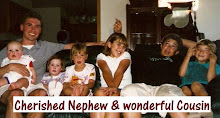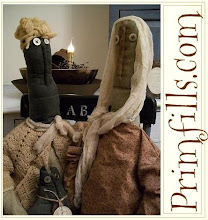Josh's Tree Spring/Summer 2012
Dont’s and Do’s for Support People
(What to say or not to say)
by Tammie Thomson
Dont's
Don’t avoid the bereaved parent. This is the time they really need to know you care about them. There is nothing worse than being deserted when you are most in need.
Don’t fail to acknowledge that they have lost their son or daughter when you see them after the death. It will probably seem to them that you are denying the existence of their child if you say nothing, or that you do not care that they have lost a big part of their life — past, present and particularly future.
Sending a card is a good idea, especially if you live a distance away. Many people have commented how much they appreciated that people have sent a card, note or letter of condolence, and they are usually kept and re-read from time to time, as the bereaved parent feels the need. One of my most treasured notes of condolence is a short note from Susan, the midwife who delivered Nicholas (my youngest son), saying that she was thinking of me, that she knew my inner strength and she hoped I would be able to draw on that strength.
Don’t say things such as:
"It’s God’s will." — this is seldom any comfort. Especially avoid it if you don’t know the person well enough to be sure of their spiritual beliefs. If they believe it is God’s will, they will more than likely say so themselves. If they don't, they certainly don't need someone else spouting this to them.
"It’s all for the best." — that may or may not be the case, but it does not in any way diminish the grief they feel, and sounds as though you are trivializing the death of their child.
"At least you still have the other children." — the presence of other children still living may or may not be a comfort, but again, does not mean that the loss of the child is less important. Imagine you have several very close friends, all very different, whom you value and love each for themselves. If one died, would it help if someone said, "I’m sorry to hear that Joe died. But at least Fred, Susan and Peter are still alive,"? Would you mourn Joe less, or feel any better?
Remember; we are each individuals, and children are no different. Appreciate that parents have known their child as an individual, and grieve for them as an individual.
"Are you going to have another baby?" — their child cannot be replaced by another, and by asking this you are implying that children are expendable. One does not just have a child after the death of another as though they are replacing a worn-out bomb of a car with a nice shiny, new, latest-model vehicle.
Some people will find that the prospect of having another baby is a comfort, but it is still not an issue of replacement.You don’t ask a newly-widowed person, "Are you going to get married again?" Neither should you ask the newly bereaved parent if they are having another child. If they do plan on it, they will tell you in their own good time. If they don’t, more than likely they will mention it when they are ready."Never mind, you can always have another baby." This is the cruel version of "Are you going to have another baby?" This one suggests outrightthat the death of their child is nothing to be upset about. How would you feel if someone said it to you after your child died?
Don’t forget them after the funeral. Time and time again people tell of having wonderful support for the first few days or so, which mostly disappears once the funeral is over.
For some reason, people seem to assume that after the funeral, you get back to a ‘normal’ life. Nothing could be further from the truth, particularly when a child has died.Before the funeral, you are kept busy with funeral arrangements, friends and relatives visiting, often from far away, and numerous other things.After the funeral, the friends and relatives have gone back to their homes and families, there are usually no more formalities to attend to, and you are left with an empty house, your memories and your emotions.
Particularly for parents who stay at home while their partner works, this is the worst time.
Our house felt so empty after Dale died. Max was at school, Ronnie was at work. I had Nick to care for, which was good in that it kept me focused on something during the day, but still, I felt the absence of Dale all the time. Everywhere I looked I saw him. I looked at the box of toys and could see where he’d sat only days earlier, playing with his cars and toys. I looked out the door at the trampoline and in my mind I saw him struggling to climb up to have a bounce. I looked at the yard and saw his favorite spots for digging, and where he used to stand at the fence and talk to the next door neighbor, and I saw him doing these things. I looked at our dog, Stitch, moping around, and saw Dale sitting on him, or pulling at his lips to check out his teeth. I looked at Nick and saw Dale either trying to clobber him or cuddle him.He was everywhere — or rather, he should have been everywhere. But he was gone. And I was alone with my memories and grief most of the dayI had none of my side of the family close by and had no particular friends in Darwin as we hadn’t lived there long. The next door neighbour was friendly, but not overly, and made no approaches beyond the initial expression of sympathy and the usual chat at the fence when hanging out the clothes.My lifeline was a routine and an acquaintance named Lindi. Wake up, cup of coffee, feed Nick. Walk to the shop for the paper, slowly, to take up time. Come home, read the paper. Watch a TV show (I think it was Entertainment Tonight). Go around to Lindi’s. Play cards, talk, and drink coffee until it was time for Max to come home from school. Try to organise some dinner. Potter around in the garden. Eat tea, watch some TV, go to bed, cry my eyes out, eventually go to sleep.Lindi lived a few streets away, but I had little to do with her socially until Dale’s death. She had never met Dale. A day or two after Dale died she came around in the evening to offer moral support. A couple of days later she came around again.Her home became my refuge. When I didn’t know what to do with myself, or I couldn’t stand to be in the house any longer, I went to Lindi’s. She always welcomed me, and I was never made to feel a nuisance or that I had worn out my welcome. To this day, I don’t know how I would have coped if not for her. She was the only social life and outside support I had. She didn’t try to counsel me or tell me how to grieve, she was just there for me, and that was what I needed.
Don’t expect them to ‘get over it’. The loss of a child, whether an adult child or an infant, is not something you ‘get over’. It is something you learn to live with.
The loss is not only the relationship, it is the person — their son or daughter. And the loss of a son or daughter is not something that can be awarded the status of ‘gotten over’.
Do’s
Do let them express their grief in their own way. Wailing, crying, screaming, talking about the dead child, not wanting to talk about the dead child, silence, needing to be alone, needing to be with people... the list is endless.
Everyone has their own way of expressing grief. Expressing grief is healthy, in whatever form it takes, and it is essential that the person be allowed to do so. I have heard from many people whose friend’s and relative’s comments on their reactions have led them to think that there was something wrong with their way of coping. There is no right or wrong way to grieve. There is only what people instinctively feel they must do to express their grief.Just because someone is not comfortable with the bereaved parent’s way of grieving does not mean there is something wrong with their grief. It just means that the other person is not comfortable with it.The person who is grieving is the one who must feel comfortable with their grief — not the many others around them. Though we would all wish for everyone to appreciate our way of grieving, we realise that this is not likely. Personally, I don’t care whether someone likes my way of grieving, but at the same time, I don’t expect to have to put up with criticism and judgement from them, or anyone else.It is a matter of respect of the individual. Respect their way of grieving as you would respect any other thing about them; their taste in food and clothing, ways of raising their children, choice of lifestyle etc. It may not be for you, but it suits them, so accept it as their right.
Do listen. There is little more frustrating for a bereaved parent than having someone ask, "How are you?" and when you start to tell them, their eyes glaze over.
This is one reason why most bereaved parents eventually just say they’re ‘okay’. They don’t know if you really want to know, or are just being ‘polite’.If you really are interested in how they are, after the initial, "I’m okay," ask them, "No, I mean how are you really?"This gives them the go-ahead. It tells them that finally someone is truly interested in their wellbeing, and they feel free to talk, knowing that someone will actually listen to what they have to say.So when they do start to talk, listen. Listen properly. Don’t interrupt. Don’t launch into your own story of how Mrs X down the road lost a child and so you know what they must be going through — you don’t, take my word for it. Even bereaved parents never know exactly what another bereaved parent is going through.As a bereaved parent, what I wanted from listeners was that they be truly interested in listening to me. I wanted to see that they were interested. Nodding and "Uh huh," in the right places is helpful, providing it’s not overdone, or done out of habit. We can tell if you’re not sincerely listening to us!Questions are usually okay, but let us have our say first, please. It’s very frustrating when you’re trying to say something and the other person keeps interrupting you.
Be patient. We may get stuck for words or overcome with emotion while we are talking to you. Don’t feel awkward, and feel that you must fill in the pauses in the conversation, second guess us, or tell us, "There, there, it’ll be all right,
there’s no need to cry." There is a need to cry — that’s why we do it. Feel free to cry with us.
Do just learn to be with us — the people we will remember with appreciation are the ones who let us talk as much as we need to about our loss, and our lost child. We remember and appreciate it when someone is genuinely interested, and respects our need to talk about it, even if it’s time and time again.
These are the people we need — the ones who let us be ourselves, accept us as we are, and let us grieve as we must.Support people often don’t realise that just being with us is the best thing they can do in many cases.While some people will prefer to be alone, many need people around them. Not necessarily for conversation, but just for the company. You don’t have to entertain us, you just have to be with us.I found it a great comfort to have my sister and my best friend (who both flew up from Queensland) around immediately after Dale died. They didn’t feel they were being particularly helpful, but their presence was all I needed from them. Just to have them around gave me a wonderful sense of support.
Of course there are always times when people would rather be alone. It can be hard to tell when you should stay around your friend and when to leave them on their own. The easiest way to find out is to ask. Something like, "Would you like some company, or would you prefer to be alone?" gets the message across without sounding condescending or pushy.
Do realize that their life has changed irrevocably. (This ties in with ‘Don't forget them after the funeral.’) Their child is gone. Your life will go on more or less as usual, but theirs will not, and it will be a long time before they feel they live a ‘normal’ life again, if at all.
You need not live in their pockets, but remember to show that you think of them and you care. Drop by for a cup of coffee, or just to say hello, and don’t be afraid to mention the dead child. Most bereaved parents welcome the opportunity to talk about their child. So many people shy away from even mentioning our child, and it hurts. After all, dead or not, our child is still part of our family.
Most bereaved parents appreciate it when people talk about their child normally, without hushed tones or euphemisms. If, for example, you mention that you notice a sibling has similar mannerisms, or you send a card or drop in because it is the dead child’s birthday (or death day, or whatever), we are glad that our child is remembered, and that you are not afraid to say so. We appreciate it when others remember our child, and it warms us to know that you are not afraid to show it.
Jennifer Witt, a bereaved parent who has multiple roles in support groups, makes the following suggestions for friends and family of bereaved parents:
Don’t be afraid to talk about the loss of the child. Parents need time to express their grief and speak of their memories.
Allow them their time to grieve. It is not up to others to denote the proper time to get on with life. Please be gentle and offer an ear or shoulder.
You do not always need to say something. Sometimes the greatest support comes in prayers, meals, cards, listening ears and hugs.
Don’t forget to continue to make contact with the family after the funeral. So often families are left on their own after the initial bereavement period.
Make a donation in the child’s name to the local children’s hospital or charity of choice by the family. It is a beautiful way of keeping the memory of the child.
Above all, show your support of us in whatever way you feel comfortable. This is what we need.
The True Value of Listening
Listening is listed in the previous Do’s section.
Never underestimate how much it means to your friend that you are willing to listen to what they have to say about their loss and their child.
All too often they will be asked, "How are you?" They usually answer, "I’m okay," or something similar. They know that most people are only ‘being polite’. They find out the hard way that if they do want to talk about how they really are, the person doing the asking will become uncomfortable and either change the subject or develop an urgent errand to attend to.
Just by being prepared to listen you can provide invaluable support. Be aware that you may hear the same things many times as the parents try to find a way to cope with their grief. Some people have a strong need to talk about their loss,
and others not so strong. But we all appreciate it when someone will listen to us when we do need to talk.
Seldom will you be expected to offer any advice. It’s the listening that counts.
Practical things you can do to help
These are things that can make a difference to bereaved parents for months after the death of a child, not just in the immediate days and weeks.
1) General housekeeping and yardwork eg. washing dishes, sweeping floors, mowing lawns etc.
These are only ‘little things’, but your help, at a time when just getting out of bed is an effort, will be appreciated.
2) Transport: you may be able to help by dropping people off for appointments, running errands, collecting children from school, shopping and so on.
3) Cooking: although many people will have little or no appetite, they often feel even less like cooking even if they do have an appetite. They may be tempted to eat if there is something ready to go rather than make the effort to organise
something themselves.
The classic casserole, stew or other dish that can be frozen if necessary will never go astray.
One point to remember is that if you see anything that needs doing, don’t ask – just do it. Most people refuse offers of help either automatically or because they don’t want to ‘trouble you’. This is because they will have many people say, "If there’s anything I can do, just let me know, " and they know that it is often used as a polite expression, with little sincerity behind it.
If you just hop in and do something to help, your friends will appreciate that you have taken the time to support them.




